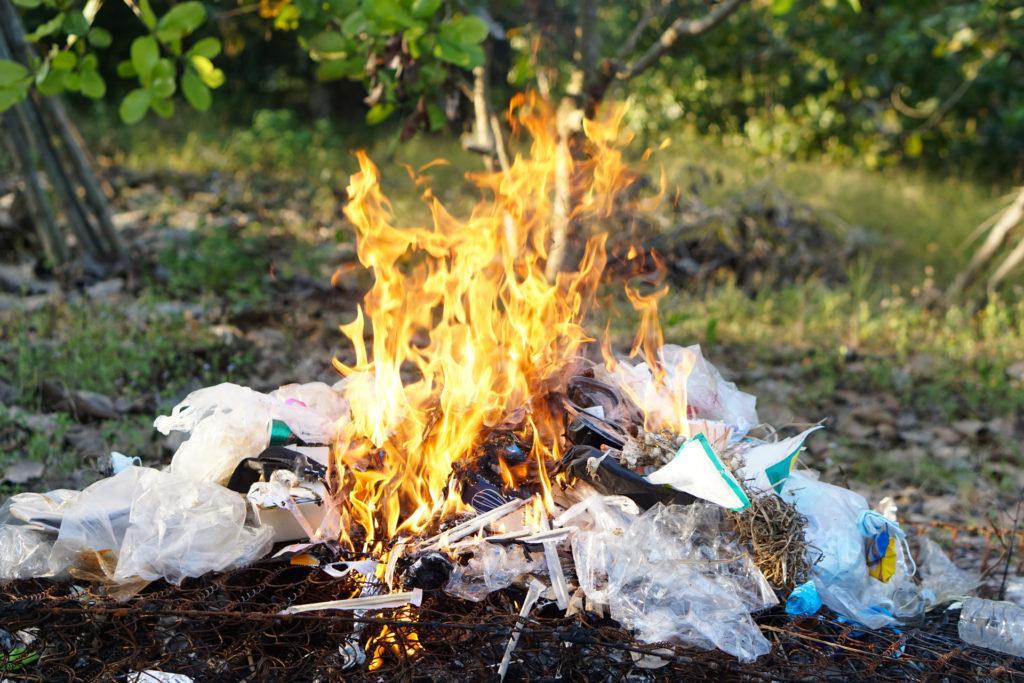Analysis of the Fire Service Act (Chapter 35:50)as it relates to Environmental Health and Air Pollution

The management of pollution, particularly air pollution caused by illegal fires and burning, is a crucial public health and environmental issue in Trinidad and Tobago. This article provides an in-depth analysis based on the Fire Service Act (Chapter 35:50), highlighting the roles of relevant agencies in combating these practices, alongside the legal framework surrounding fines, punishments, and enforcement measures.
Overview of Pollution and Air Quality Concerns
Air pollution from illegal fires is a pressing issue that negatively impacts the environment and public health. Pollutants from such activities, including particulate matter, toxic chemicals, and greenhouse gases, contribute to respiratory problems, cardiovascular diseases, and environmental degradation. The act of burning refuse or other materials, often illegally, leads to significant deterioration in air quality.
Legal Framework on Illegal Burning
Under the Fire Service Act, the Trinidad and Tobago Fire Service is primarily tasked with responding to and mitigating the damage caused by fires, including those stemming from illegal activities. The Chief Fire Officer plays a key role in coordinating fire investigations to ascertain the cause and source of fires, including those linked to illegal burning.
The Fire Service is empowered to intervene in incidents of illegal burning and can work in tandem with other agencies such as the Environmental Management Authority (EMA) and the Police Service to enforce regulations. While the Fire Service itself focuses on the immediate control of fires, the EMA takes on the broader environmental enforcement role, particularly when the source of the fire causes environmental pollution.
Penalties for Illegal Burning
As outlined in the Act, there are various fines and penalties associated with activities like illegal fires that result in pollution. Sections of the Fire Service Act provide the Chief Fire Officer with the authority to enforce laws, such as:
- Section 22 (Penalty for Failure to Comply with Fire Safety Regulations): Addresses the responsibilities of public premises owners and individuals regarding fire prevention measures. Failure to comply with notices from the Chief Fire Officer, including those related to illegal burning, can lead to fines of up to $3,000 and imprisonment.
- Section 48 (False Alarms and Illegal Fire Notices): This section imposes fines on individuals who provide false fire alarms or conduct illegal fire-related activities, including unauthorized burning. Violators are subject to fines up to $1,200 and potential imprisonment.
Additionally, the Environmental Management Authority (EMA), which operates under separate legislation, also imposes penalties for violations of environmental standards, including those related to illegal air pollution through burning. The EMA is responsible for conducting investigations into activities that contribute to environmental degradation, with powers to issue fines and enforce cleanup activities.
Environmental and Health Impact of Fire Regulations:
Illegal burning activities and their environmental impacts are addressed through strict penalties under this law. These regulations not only protect human life and property but also aim to prevent environmental degradation caused by unauthorized fires.
- Setting Illegal Fires:
- The Fire Service Act empowers the Fire Service to manage and prevent illegal fires, especially those that may cause harm to public health, property, or the environment. Section 35 outlines the duties of fire officers to preserve life and property from destruction, whether from fire or related hazards.
- Fire officers are authorized to enter premises, without the consent of the owner, if there is a fire hazard. This ensures prompt action in protecting the environment from the detrimental effects of fires (Section 41).
- Fines and Penalties:
- The act details fines for various fire-related offenses. For example, individuals who obstruct fire officers or interfere with their duties can face fines of up to $1,200 and imprisonment for up to three months (Section 41). This applies to those who might interfere during firefighting or illegal fire-setting incidents.
- A person found guilty of setting an illegal fire or damaging fire hydrants may face a fine of $450. Additionally, those misusing fire hydrants for purposes other than firefighting face similar penalties (Section 39).
- False alarms of fire are taken seriously, with penalties of $1,200 and up to three months of imprisonment for offenders (Section 48). False alarms not only waste Fire Service resources but also endanger public safety by diverting attention from actual emergencies.
Investigations and Enforcement:
- Fire Investigations: The Fire Service is responsible for investigating the origins of any fire. The Chief Fire Officer holds the power to appoint officers to inspect premises for fire safety compliance and to conduct inquiries regarding fire incidents (Section 42). This responsibility ensures that any illegal or dangerous fire activities are thoroughly examined, with a focus on preventing recurrence.
- Powers of Arrest: Fire officers are given the authority to arrest individuals who impede their duties or are involved in illegal fire activities (Section 36). This strengthens the enforcement of fire laws and the deterrence of illegal fire-setting.
Orders for Safety and Premises Closure:
- The Chief Fire Officer may issue notices to building owners or occupants requiring safety measures to reduce fire hazards (Section 44). Failure to comply can result in fines of up to $3,000 and three months of imprisonment, with additional daily fines for continuing offenses.
- For public safety, the Fire Officer may apply for court orders to close hazardous premises if the risks posed by illegal fires or other dangers are imminent (Section 45).
Collaboration for Environmental Protection:
The Fire Service collaborates with other agencies, including WASA, local authorities, and environmental agencies, to mitigate the environmental effects of fires. The act provides for consultations between the Chief Fire Officer and local authorities to ensure that structural safety and environmental considerations are addressed (Section 44).
Roles and Responsibilities of Enforcement Agencies
- Fire Service: The Fire Service is the primary responder to fire emergencies. Under the Fire Service Act, the Chief Fire Officer can delegate officers to investigate and respond to illegal burning incidents. Fire officers are empowered to extinguish fires, conduct fire safety inspections, and arrest individuals found in violation of fire safety regulations.
- Environmental Management Authority (EMA): The EMA is the agency responsible for regulating and controlling air pollution. It plays a crucial role in investigating illegal fires that contribute to air pollution, monitoring air quality, and imposing penalties for environmental offenses. The EMA’s enforcement arm collaborates with the Fire Service to ensure that illegal burning activities are penalized appropriately.
- Police Service: In cases where illegal fires are linked to criminal activities, the Police Service can support the Fire Service in conducting investigations, making arrests, and enforcing fines and penalties.
Public Health Impacts of Air Pollution from Illegal Fires
Illegal fires release hazardous pollutants such as carbon monoxide, volatile organic compounds (VOCs), and particulate matter (PM2.5 and PM10), which are known to cause respiratory illnesses, worsen asthma, and increase the risk of heart disease. Vulnerable groups, such as children and the elderly, are particularly at risk of developing health complications from exposure to polluted air.
Furthermore, these pollutants can have long-term environmental effects, contributing to global warming and damaging ecosystems. The unchecked practice of burning waste and other materials, if not curtailed, can lead to a decline in air quality, which in turn affects the overall well-being of the population.
Enforcement and Future Outlook
The enforcement of air pollution regulations and penalties for illegal burning remains a significant challenge in Trinidad and Tobago. Stronger collaboration between the Fire Service, EMA, and Police is essential to effectively curtail these practices. Public awareness campaigns, stricter enforcement of existing laws, and higher fines for violators could serve as deterrents for individuals who engage in illegal burning.
You can Download the Entire Act here







Responses